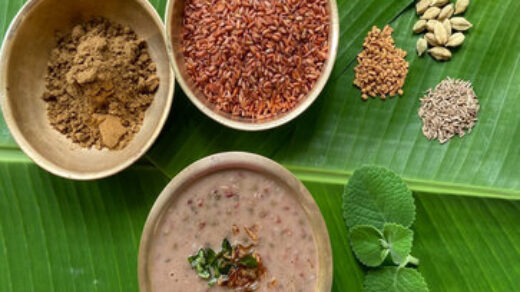Patanjali’s Ayurvedic Solutions for Combatting Infertility
Infertility is the inability to conceive after one year of trying (or six months if you’re over 35). It’s a common issue, affecting about 1 in 8 couples. While there are medical treatments available, many couples are interested in exploring natural ways to boost their fertility.
Natural remedies focus on creating a healthy environment for conception. This can involve dietary changes, stress management techniques, and lifestyle adjustments. While they might not be a guaranteed solution, natural remedies can be a safe and positive first step for couples on their journey to parenthood.
Understanding Infertility
Infertility is defined as the inability of a couple to achieve pregnancy after one year of trying without contraception (or six months if the woman is over 35). It’s a medical condition that can affect both men and women, due to a variety of factors in the reproductive system.
Causes of Infertility
Infertility can be caused by:
- Female factors: Ovulation problems, blocked fallopian tubes, endometriosis, uterine fibroids, cervical mucus issues, and hormonal imbalances.
- Male factors: Low sperm count, poor sperm quality, abnormal sperm morphology, or blockages in the male reproductive system.
- Unexplained infertility: In some cases, no clear cause can be identified despite thorough testing.
Ayurveda’s Holistic Approach to Infertility
Ayurveda, the traditional Indian system of medicine, offers a unique perspective on infertility. It focuses on creating a healthy internal environment for conception, addressing the root causes of imbalances that might be hindering fertility. Here’s how Ayurveda approaches this issue:
The Dosha Connection:
Ayurveda emphasizes the balance of three vital energies called doshas: Vata, Pitta, and Kapha. Imbalances in these doshas can contribute to various health issues, including infertility.
Vata Dosha: When aggravated, Vata can lead to irregular menstrual cycles, poor egg quality, and low sperm count.
Pitta Dosha: Excess Pitta might manifest as endometriosis, inflammation in the reproductive system, and hormonal imbalances.
Kapha Dosha: Dominant Kapha can cause blocked fallopian tubes, excessive weight gain, and sluggish circulation in the reproductive organs.
Ayurvedic Treatments for Infertility
Ayurvedic practitioners tailor treatment plans based on the individual’s doshic imbalances. Here are some common approaches:
- Diet and Lifestyle: Dietary modifications promoting gut health and proper digestion are key. Lifestyle adjustments like stress management through yoga and meditation are also emphasized.
- Panchakarma: This intensive detoxification process aims to remove accumulated toxins (ama) that can contribute to infertility. It involves various methods like massage, herbal enemas, and therapeutic vomiting (under strict supervision).
- Herbal Remedies: Certain herbs like Ashwagandha, Shatavari, and Triphala are used to balance hormones, regulate menstrual cycles, and improve sperm quality.
Benefits and Considerations
- Holistic Approach: Ayurveda addresses overall health and well-being, potentially improving fertility naturally.
- Personalized Treatment: Plans are tailored to individual needs, addressing the root cause of imbalances.
- Limited Scientific Evidence: While promising, more research is going on to definitively confirm the effectiveness of specific Ayurvedic treatments for infertility.
Note: It’s important to note that Ayurveda should not be seen as a replacement for conventional medical evaluation and treatment for infertility.
Consulting a qualified Ayurvedic practitioner alongside your doctor can provide a comprehensive approach to your fertility journey.
The Role of Herbs in Fertility
Herbs have a long history of being used to address fertility concerns. While modern medicine offers advanced treatments, herbal remedies remain an attractive option for some couples due to:
- The desire for a holistic approach: Some prefer natural methods alongside or before medical intervention.
- Potential benefits: Certain herbs support hormonal balance, regulate menstrual irregularities, or even act as aphrodisiacs.
Medicinal plants used for infertility
Infertility affects millions worldwide. While modern medicine offers solutions, many turn to nature. Medicinal plants with their inherent healing properties.
It has been used for centuries to address fertility challenges, offering hope and support to those seeking to conceive.
1. Ashwagandha (Withania somnifera)
Ashwagandha, also known as Indian ginseng or winter cherry, is a prominent herb in Ayurvedic medicine. The plant is native to India and has been used for thousands of years to promote overall health and well-being.
The name “Ashwagandha” translates to “smell of the horse,” indicating that the herb has a strong smell and is believed to impart the vigor and strength of a stallion.
Properties:
- Rasa (Taste): Bitter, astringent, sweet
- Guna (Quality): Light, unctuous
- Virya (Potency): Hot
- Vipaka (Post-digestive effect): Sweet
- Dosha Impact: Balances Vata and Kapha
How to Take:
- Powder: 1-2 teaspoons daily mixed with warm milk or water, preferably in the morning or before bed.
- Capsules/Tablets: Follow the dosage instructions on the product label.
- Ashwagandha Milk: Boil 1 teaspoon of Ashwagandha powder in a cup of milk, add a pinch of saffron and a bit of honey, and drink it before bedtime.
2. Kapikacchu (Mucuna pruriens)
Kapikacchu, also known as velvet bean, is celebrated for its aphrodisiac properties and its role in enhancing male fertility by increasing sperm quality and quantity. Rich in L-DOPA, it reduces stress, improves mood, and supports healthy testosterone levels.
This boosts libido, energy, and stamina, making it beneficial for overall reproductive health. Additionally, it promotes better sleep and mental clarity.
Properties:
- Rasa (Taste): Sweet, bitter
- Guna (Quality): Heavy, unctuous
- Virya (Potency): Hot
- Vipaka (Post-digestive effect): Sweet
- Dosha Impact: Balances Vata and Pitta
How to Take:
- Powder: 1 teaspoon mixed with warm milk or water, taken twice daily.
- Capsules/Tablets: Follow the dosage instructions on the product label.
3. Musali (Chlorophytum borivilianum)
Musali, or Safed Musli, is a renowned herb in Ayurveda known for its rejuvenating and aphrodisiac qualities. It helps improve both male and female fertility by strengthening reproductive tissues.
Musali enhances vitality, boosts libido, and increases stamina. Its adaptogenic properties support overall hormonal balance and immune function, making it a powerful herb for enhancing reproductive health and overall well-being.
Properties:
- Rasa (Taste): Sweet
- Guna (Quality): Heavy, unctuous
- Virya (Potency): Cooling
- Vipaka (Post-digestive effect): Sweet
- Dosha Impact: Balances Vata and Pitta
How to Take:
- Powder: 1-2 teaspoons daily, mixed with milk or water.
- Capsules/Tablets: Follow the dosage instructions on the product label.
4. Shatavari (Asparagus racemosus)
Shatavari, known as the “Queen of Herbs,” is highly regarded for its adaptogenic and rejuvenating properties, particularly for female reproductive health.
It supports overall fertility by nourishing and balancing the female reproductive system. Shatavari helps regulate menstrual cycles, enhance ovulation, and promote healthy hormonal function.
It also boosts libido, reduces stress, and improves vitality, making it a key herb for enhancing female fertility and overall well-being.
Properties:
- Rasa (Taste): Sweet, bitter
- Guna (Quality): Heavy, unctuous
- Virya (Potency): Cooling
- Vipaka (Post-digestive effect): Sweet
- Dosha Impact: Balances Vata and Pitta
How to Take:
- Powder: 1-2 teaspoons mixed with warm milk or water, taken twice daily.
- Capsules/Tablets: Follow the dosage instructions on the product label.
- Shatavari Milk: Boil 1 teaspoon of Shatavari powder in a cup of milk, add honey, and drink it once or twice a day.
5. Amalaki (Emblica officinalis)
Properties:
- Rasa (Taste): Sour, sweet, pungent, bitter, astringent
- Guna (Quality): Light, dry
- Virya (Potency): Cooling
- Vipaka (Post-digestive effect): Sweet
- Dosha Impact: Balances all three doshas (Vata, Pitta, Kapha)
How to Take:
- Powder: 1-2 teaspoons daily, mixed with warm water or juice.
- Capsules/Tablets: Follow the dosage instructions on the product label.
- Amalaki Juice: Mix 1 tablespoon of Amalaki powder with water or honey and drink daily.
Note: It’s always best to consult with a qualified Ayurvedic practitioner before starting any herbal regimen, especially for treating specific conditions like infertility.
How Medicinal Plants Improve Fertility
Medicinal plants offer a natural approach to enhancing fertility by targeting key areas of reproductive health:
- Hormonal Balance: Many herbs help regulate hormone levels, ensuring optimal conditions for ovulation and conception.
- Reproductive System Health: Certain plants nourish and strengthen the reproductive organs, improving their function.
- Enhanced Libido: Some herbs boost sexual desire, contributing to a healthy and fulfilling sex life, essential for conception.
- Improved Sperm Quality: In men, specific plants can increase sperm count, motility, and overall quality.
- Reduced Stress: Many herbs possess adaptogenic properties, helping manage stress, a common factor affecting fertility.
By addressing these fundamental aspects of reproductive health, medicinal plants can significantly increase the chances of conception.
Using Medicinal Plants Safely and Effectively
When incorporating medicinal plants into a fertility plan, it’s essential to prioritize safety and efficacy:
- Professional Guidance: Always consult with a qualified healthcare provider or herbalist before starting any new herbal regimen.
- Dosage and Administration: Adhere strictly to recommended dosages and administration methods. Incorrect usage can lead to adverse effects.
- Quality and Purity: Purchase herbs from reputable sources to ensure quality and purity.
- Potential Interactions: Inform your healthcare provider about all medications, supplements, and herbs you’re taking to avoid interactions.
- Monitor for Side Effects: Be aware of potential side effects and discontinue use if any adverse reactions occur.
- Patience and Consistency: Fertility treatments, including herbal remedies, often require time and consistency.
Note: Medicinal plants can be a valuable addition to fertility support, but they should complement, not replace conventional medical care.
Frequently Asked Questions
1. How long does it take for medicinal plants to work?
The time to see results can vary, but many individuals notice improvements within a few months of consistent use and lifestyle changes.
2. Can medicinal plants be used alongside conventional treatments?
Yes, medicinal plants can often be used alongside conventional treatments, but it is crucial to do so under the guidance of a healthcare provider.
3. Are there any risks associated with using medicinal plants?
While medicinal plants are generally safe, they can have potential side effects. It is important to consult with a healthcare provider and monitor your health.
4. What are the best practices for using these plants?
Following recommended dosages, combining them with a healthy lifestyle, and consulting with a healthcare provider are best practices for using medicinal plants.
5. Can both partners use medicinal plants for fertility?
Yes, both partners can use medicinal plants to enhance their fertility. It is important to choose the right herbs for each individual’s needs.
While medicinal plants offer promising potential for supporting fertility, it’s crucial to approach them with caution and under the guidance of a healthcare provider.


























